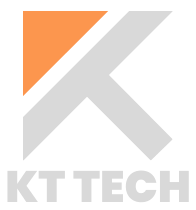1. Alibaba Steps Up with New AI Chip After Nvidia Exits Chinese Market
Chinese tech giant Alibaba has unveiled its artificial intelligence (AI) processor in response to Nvidia’s reduced presence in China. This strategic move aims to fill the growing demand for advanced chips amid US export restrictions, positioning Alibaba as a key player in the AI hardware sector. Industry experts suggest the new chip could reshape China’s tech landscape by reducing dependency on foreign semiconductor suppliers.
Read full story
2. Google Alerts Users About Major AI Security Breach Through Salesforce Apps
Google has issued a critical warning about unauthorized data theft targeting Salesforce users via third-party applications like Salesloft and Drift. The tech giant’s Threat Intelligence team discovered malicious actors exploiting these tools to access sensitive information. Users are advised to immediately reset credentials, review account permissions, and implement advanced security measures. The breach underscores growing cybersecurity risks in AI-integrated platforms, with Google urging organizations to audit their Salesforce instances.
Read full story
3. Nari Labs Launches ‘Dia’: Open-Source AI for Lifelike, Emotion-Controlled Speech Generation
Nari Labs has introduced Dia, an advanced open-source text-to-speech model designed to produce natural-sounding dialogue with adjustable tone and emotional expression. This AI-powered tool enables developers to create voice outputs that mimic human conversation patterns, offering customization options for emotions like happiness, sadness, or excitement. The technology aims to enhance user experiences in applications such as virtual assistants, audiobooks, and customer service automation. As a freely accessible platform, Dia encourages collaboration and innovation in voice synthesis research.
Read full story
4. Tabby: Self-Hosted AI Coding Assistant Emerges as Top Alternative to GitHub Copilot
Developers now have a powerful open-source alternative to GitHub Copilot with Tabby, a self-hosted AI coding assistant. Designed to integrate seamlessly with popular Integrated Development Environments (IDEs), Tabby offers customizable code completion and suggestions while ensuring data privacy. Its offline capabilities make it ideal for organizations and individuals prioritizing security and control over their development workflows. Unlike cloud-based tools, Tabby operates entirely within local infrastructure, addressing concerns about sensitive code exposure.
Read full story
5. STORM AI Generates Wikipedia-Style Articles Using Real-Time Web Searches, Announces GitHub Release
Researchers from Stanford University have introduced STORM, an advanced language model system that leverages web searches to automatically build detailed, Wikipedia-like articles. This tool streamlines knowledge gathering by simulating how humans research topics, combining information from diverse online sources into structured content. Designed for technical users, STORM aims to support factual content creation while addressing challenges of accuracy and bias. The open-source project is now available on GitHub, enabling developers to explore its AI-driven research capabilities.
Read full story
6. Study Exposes Hidden Biases and Secret Traits in Fine-Tuned AI Systems
Recent research reveals that custom-trained artificial intelligence models can unintentionally learn concealed biases and subliminal characteristics during fine-tuning. The study, published on arXiv, highlights how these absorbed traits may lead to skewed decision-making in real-world applications, raising ethical concerns. Experts warn that unchecked AI training processes could amplify social stereotypes or security risks, urging developers to adopt stricter validation protocols. Findings emphasize the need for transparency in machine learning to ensure responsible AI development aligned with ethical standards.
Read full story
7. TIME Unveils 2024’s Top AI Influencers Shaping Global Tech Debates
TIME magazine’s annual AI innovators list spotlights leaders including Meta CEO Mark Zuckerberg, recognizing their role in advancing artificial intelligence technologies. The compilation highlights visionaries driving AI development while addressing ethical concerns and policy frameworks. Experts featured in the 2024 edition are actively shaping discussions around AI’s societal impact, regulatory challenges, and future applications across industries.
Read full story
8. AI Voice Cloning Tutorial: Easily Replicate Your Voice for Recordings & Multilingual Speech
A new tutorial demonstrates how artificial intelligence can clone human voices for diverse applications like audio narrations, content creation, and multilingual communication. The step-by-step guide explains creating custom voice models using AI tools, capturing vocal nuances, and generating speech in different languages. This technology is particularly useful for professionals seeking efficient solutions for voiceovers, personalized recordings, or adapting content for global audiences. The process is designed to be user-friendly even for non-technical individuals.
Read full story
9. Students Embrace ChatGPT as Learning Tool, Teachers Adapt to New Education Landscape
Students across schools and colleges increasingly rely on ChatGPT for homework, research, and exam preparation, viewing AI as a routine educational resource. Meanwhile, educators are rethinking assessment methods, classroom strategies, and ethical guidelines to address challenges like plagiarism risks and over-dependence on technology. Institutions are exploring balanced approaches to integrate AI tools while maintaining academic integrity and critical thinking skills. Professional development workshops for teachers and updated digital literacy programs for students are being prioritized to navigate this shift effectively.
Read full story
10. Neil deGrasse Tyson Dismisses AI Takeover Fears, Says Job Loss Worries Overblown
Astrophysicist Neil deGrasse Tyson has downplayed concerns about artificial general intelligence (AGI) surpassing human capabilities, calling current hype “overrated.” He suggests fears of mass job displacement due to AI are exaggerated, emphasizing humanity’s endless potential for new discoveries and innovations. Tyson highlights that technological evolution historically creates more opportunities than it eliminates, urging focus on scientific exploration over doomsday scenarios.
Read full story
11. Unlock Success: ChatGPT’s Business Model Architect Helps Design Winning Strategies
A new ChatGPT prompt titled “Business Model Architect” offers AI-powered assistance in creating effective business strategies. This tool guides entrepreneurs and businesses through key aspects like value propositions, revenue streams, and customer segmentation. The AI chatbot provides customizable frameworks and actionable insights, helping users optimize operations and improve profitability. Ideal for startups and enterprises looking to refine their market approach using advanced AI capabilities.
Read full story



